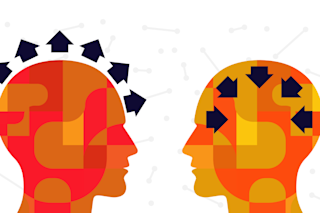Swiss psychiatrist Carl Jung popularized the terms introvert and extrovert in the 1900s; but a century later, his postulations about personality types have become so warped by popular culture that the reputations of introverts everywhere are at stake.
Jung originally sought to understand how people derive and orient their energies. That is to say, according to Jung, extroverts draw their energy from those around them while introverts pull it from within themselves. He suggested that these personality traits are different — but equally healthy. One isn’t better than the other.
Studies suggest that, in the general population, there’s a nearly 50-50 split between introverts and extroverts — though we live in a world of “extroversion bias,” write the authors of a recent study published in Psychological Science. Popular opinion in the U.S. has shifted Jung’s original definitions, ascribing more positive adjectives, like “outgoing,” “high energy” and “chatty,” to extroverts while ...














